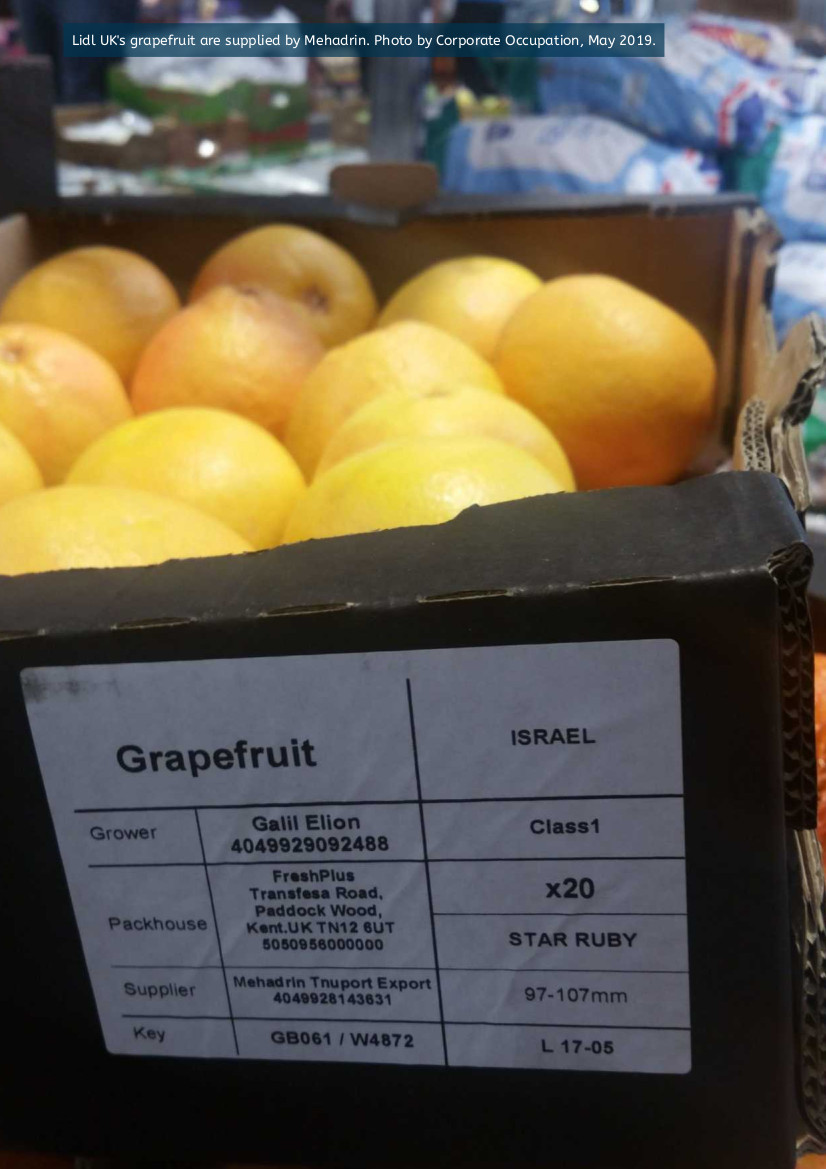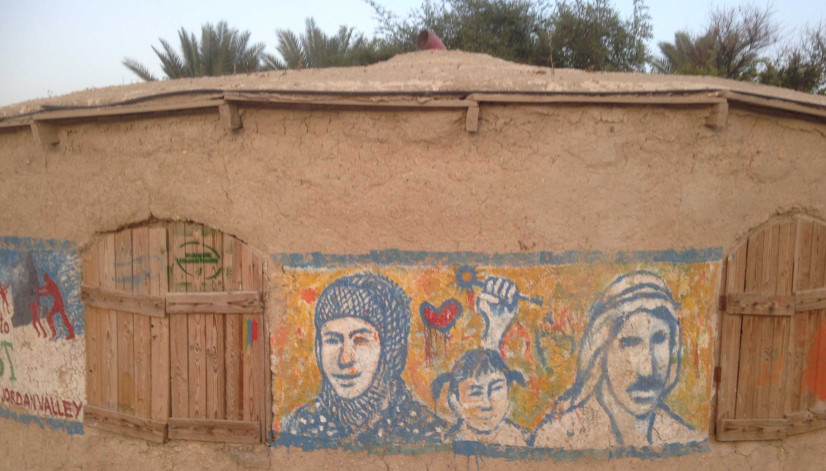Despite the fact that there is -as demonstrated by this web-site- clearly a lot of more work to be done for people campaigning for Boycott, Divestment and Sanctions of Israel, a recent visit to the Jordan Valley confirmed that there are plenty of reasons for the BDS movement to take stock of its successes.
The fertile Jordan Valley is the largest agricultural area of the West Bank and the origin of most agricultural settlement produce (see, for example, http://corporateoccupation.wordpress.com/2009/03/20/occupation-as-profit-the-settler-economy/). Hence companies based in the Valley, such as the vegetable, fruit and flower exporter Carmel Agrexco, have been prime targets for the boycott movement and they are now visibly suffering a reduction in exports as a result. After spending a week interviewing Palestinians working in the settlements, it seems obvious to me both that our strategies are working and that they are supported by the exploited settlement workers themselves.
One Palestinian “middleman” (who has the responsibility to find the amount of workers that the settlers want each day from the surrounding Palestinian communities) for Mehola, one of the biggest settlements exporting to Europe through Agrexco and Arava, told me that the boycott has become a major issue at his workplace: “I used to be responsible for 22 workers”, he reveals “but now I only bring 15. After the Gaza war last year exports shrunk a lot and they have not gone up again since then, so the settlement does not need as many men to work”. Another worker from Mehola provide similar information, saying that fruits, and especially dates, are now frequently left in the packinghouse refrigeration houses without being sent away for exports and that the areas they are farming are shrinking. According to him, less and less fruit, such as oranges and grapes, are being exported to the UK, with the main exports now being herbs. On the face of it, this man could be considered one of the losers of the boycott movement: normally he would spend the spring picking grapes for the foreign markets for 80 Shekels a day -around half the legal minimum wage-, but this year the work is simply not available. However, his response to this development is positive. “Yes, I support the boycott”, he says. “Now when I don’t have to work in the settlement I have had time to try to farm my own land and then maybe I can sell my own produce.” No-one is suggesting that this is an easy option. Palestinian trade, even within the West Bank, is heavily compromised by Israeli checkpoints and restrictions of movement, but it is an option that gives the Palestinians a way of controlling their own lives without being directly exploited by the occupier and it is the only one which might one day give them the means to create an independent economy. The support for the boycott expressed by this man is echoed everywhere I go in the Valley, by settlement workers from Bardala to Al Jiftlik, Tamoun to Taysir.
At the recently held 5th Bil’in conference of non-violent resistance, the boycott movement was hailed as one of the main avenues for international contributions to the Palestinian popular struggle and the UK was mentioned as one of most active countries contributing to its growing success. The workers I talked to would rather lose their jobs than continue to be exploited by the occupation, but they need strong outside support. Let’s not disappoint them.
Apartheid in the Fields: From Occupied Palestine to UK Supermarkets (2020 Update), Endnotes
Here are the references for our 2020 update to Apartheid in the Fields P3. Introduction https://mondoweiss.net/2019/11/un-publishes-database-ofcompanies-profiting-off-human-rights-abuses-not-on-israel-but-myanmar/ P4. The ongoing ethnic cleansing of the Jordan Valley https://btselem.org/jordan_valley See, for example, https://corporateoccupation.org/2010/08/11/the-jordan-valley-meeting-point-the-jewish-national-funds-racist-alternative-reality/ https://m.btselem.org/jordan_valley http://jordanvalleysolidarity.org/reports/al-jazeera-how-israel-engages-in-water-apartheid/ http://jordanvalleysolidarity.org/reports/al-jazeera-how-israel-engages-in-water-apartheid/ http://jordanvalleysolidarity.org/news/tractors-and-water-tanks-confiscated-in-al-maleh/ http://jordanvalleysolidarity.org/wp-content/uploads/2008/03/jv%20map%20tony.jpg Read more



1 Comment
Reasons to be cheerful(ish): the boycott as seen from the occupied Jordan Valley « band annie’s Weblog · 25th April 2010 at 7:00 pm
[…] read on […]